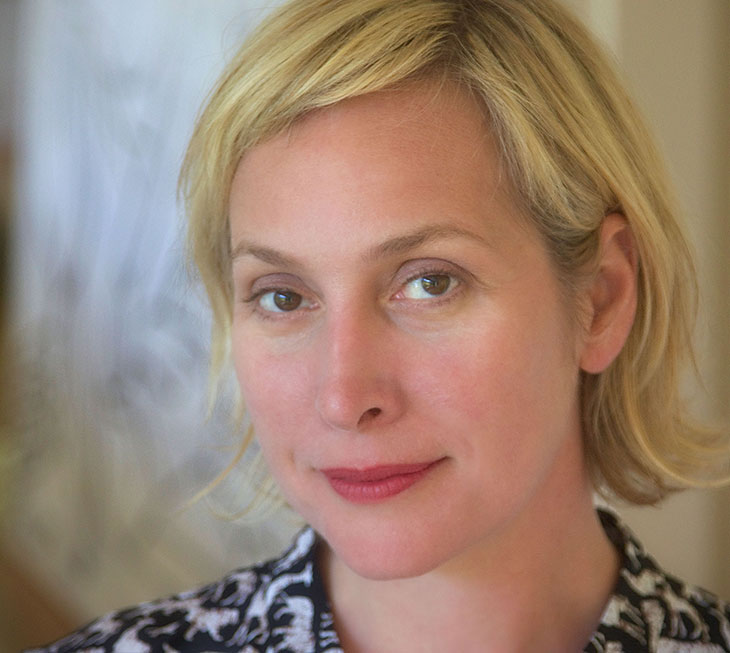Christina Mace-Turner

Christina Mace-Turner’s career trajectory appears to have been generated through a perfect storm of positive parental role modeling, self-directed future insight, a determination “to learn as much as possible about as many things as possible related to the work I’m interested in,” and an appreciation — gleaned at Exeter — for Plato. As a business affairs and content strategy expert in the tech industry, Mace-Turner ’88 has worked with multiple organizations — including Apple, Flipboard and the Helen Gurley Brown Trust — helping them develop their messages and brands. But her first job entailed cutting her legal teeth as an intellectual property attorney at Loeb & Loeb LLP in New York.
“I went to law school not because I wanted to practice law but because I was interested in technology,” she explains. “My mother went to law school, as one of two women in her class, and became an entrepreneur. So I knew the law offered good foundational structure for a business environment. When you bring new products to market, the legal boundaries are a major issue because the law is this iterative process; when it doesn’t anticipate a situation, there’s suddenly this big question mark. I knew that how things would evolve in the space of the Internet would be drastically impacted by the law and vice versa, that there would be this relationship of real friction and evolution. That’s what intrigued me.”
Post-Loeb, she landed at TBWAChiatDay in Los Angeles, then with Apple, where she worked with content partners — primarily film studios at first. But as the app store and iOS platform grew, so did the range of her content colleagues. “I’ve worked across almost every industry — I can’t think of a vertical that I haven’t worked with,” says Mace-Turner. “You have to be able to sit in the shoes of that industry — and get comfortable quickly — so you can help them say, ‘OK, this is what we’re about and here’s this platform. What’s our bridge? How do we use this in a way that’s useful to us and what are we going to get back?’ When the relationship is truly optimized, when there’s a great understanding of the platform and what the company is able to offer there, then you’ve created a meaningful product — and something that can’t exist in any other environment. Take Flipboard’s launch, for example: It enabled media companies to be able to express themselves on the iOS platform, but it also allowed consumers to have an experience that they couldn’t have outside of an iPad. That is the magic. That’s what’s so exciting about this industry.”
In fact, after Apple, Mace-Turner signed on with Flipboard to help build partnerships and to explore the world of startups: “I wanted to know more about this new type of industrial revolution, the technology revolution.” Mace-Turner fell for the industry’s Wild West culture — lock, stock and barrel. “By the numbers, there are very few people who make tons of money in tech,” she says. “Most people are going to find healthy failure: nobody cares if you fail at launching a startup because they speak the same language — they know how hard it is, they know that 9 out of 10 are going to fail. Instead of saying ‘fail’ they say ‘pivot,’ and start over with a new idea. Because there are so many things you can do.”
While she thrives on that excitement, she also espouses a community-driven commitment that envisions, for example, public institutions becoming places of learning around computer science. Recently, she collaborated with the Helen Gurley Brown Trust on creating the BridgeUp: STEM/American Museum of Natural History venture, a free, science-meets-computer-science code-writing program for ninth- and 10th-grade girls. Because if technology is the new final frontier, Mace-Turner feels that we should reach it together. “Whether you’re a big corporation, a medium-sized business or a nonprofit, it doesn’t matter: You’re in the technology business — or you’re going to be,” she says. “My role has been to try to help people optimize and seize the opportunities that come with technology, as opposed to getting crushed. I like helping them flourish and transition their business into this tech space, because it is fundamentally important for their future. Think about it: If nonprofits don’t have a place in tech, all the institutional learning is going to die off. The millennials, the next generations of leaders, are learning through social media.”
And that’s where the Plato bit comes in. Among many lifelong delights Mace-Turner gained at Exeter — she’s still close with her freshman-year roommate, and their families spend holidays together — was Julia Duff’s philosophy class. Mace-Turner loved Plato’s “flow of thought, how rational it was and how contemplative. He forced you to reflect upon yourself and your own actions,” she says. “I believe that if you have access to technology’s teeny, rarified world, there’s a moral obligation to lift other people with you. It’s like Plato’s allegory of the cave: If you get out, you don’t go running off into the wilderness; you figure out how to go back and take people out with you. Technology can be used to do bad things, but it can also be used to do wonderful things. I enjoy helping people exploit the wonderful pieces, to pull that thread forward. That’s my goal.”
By Daneet Steffens ’82